
Now streaming on:
"Barbie," director and co-writer Greta Gerwig’s summer splash, is a dazzling achievement, both technically and in tone. It’s a visual feast that succeeds as both a gleeful escape and a battle cry. So crammed with impeccable attention to detail is "Barbie” that you couldn’t possibly catch it all in a single sitting; you’d have to devote an entire viewing just to the accessories, for example. The costume design (led by two-time Oscar winner Jacqueline Durran) and production design (led by six-time Oscar nominee Sarah Greenwood) are constantly clever and colorful, befitting the ever-evolving icon, and cinematographer Rodrigo Prieto (a three-time Oscar nominee) gives everything a glossy gleam. It’s not just that Gerwig & Co. have recreated a bunch of Barbies from throughout her decades-long history, outfitted them with a variety of clothing and hairstyles, and placed them in pristine dream houses. It’s that they’ve brought these figures to life with infectious energy and a knowing wink.
“Barbie” can be hysterically funny, with giant laugh-out-loud moments generously scattered throughout. They come from the insularity of an idyllic, pink-hued realm and the physical comedy of fish-out-of-water moments and choice pop culture references as the outside world increasingly encroaches. But because the marketing campaign has been so clever and so ubiquitous, you may discover that you’ve already seen a fair amount of the movie’s inspired moments, such as the “2001: A Space Odyssey” homage and Ken’s self-pitying ‘80s power ballad. Such is the anticipation industrial complex.
And so you probably already know the basic plot: Barbie (Margot Robbie), the most popular of all the Barbies in Barbieland, begins experiencing an existential crisis. She must travel to the human world in order to understand herself and discover her true purpose. Her kinda-sorta boyfriend, Ken (Ryan Gosling), comes along for the ride because his own existence depends on Barbie acknowledging him. Both discover harsh truths—and make new friends –along the road to enlightenment. This bleeding of stark reality into an obsessively engineered fantasy calls to mind the revelations of “The Truman Show” and “The LEGO Movie,” but through a wry prism that’s specifically Gerwig’s.
This is a movie that acknowledges Barbie’s unrealistic physical proportions—and the kinds of very real body issues they can cause in young girls—while also celebrating her role as a feminist icon. After all, there was an astronaut Barbie doll (1965) before there was an actual woman in NASA’s astronaut corps (1978), an achievement “Barbie” commemorates by showing two suited-up women high-fiving each other among the stars, with Robbie’s Earth-bound Barbie saluting them with a sunny, “Yay, space!” This is also a movie in which Mattel (the doll’s manufacturer) and Warner Bros. (the film’s distributor) at least create the appearance that they’re in on the surprisingly pointed jokes at their expense. Mattel headquarters features a spacious, top-floor conference room populated solely by men with a heart-shaped, “Dr. Strangelove”-inspired lamp hovering over the table, yet Will Ferrell’s CEO insists his company’s “gender-neutral bathrooms up the wazoo” are evidence of diversity. It's a neat trick.
As the film's star, Margot Robbie finds just the right balance between satire and sincerity. She’s the perfect casting choice; it’s impossible to imagine anyone else in the role. The blonde-haired, blue-eyed stunner completely looks the part, of course, but she also radiates the kind of unflagging, exaggerated optimism required for this heightened, candy-coated world. Later, as Barbie’s understanding expands, Robbie masterfully handles the more complicated dialogue by Gerwig and her co-writer and frequent collaborator, filmmaker Noah Baumbach. From a blinding smile to a single tear and every emotion in between, Robbie finds the ideal energy and tone throughout. Her performance is a joy to behold.
And yet, Ryan Gosling is a consistent scene-stealer as he revels in Ken’s himbo frailty. He goes from Barbie’s needy beau to a swaggering, macho doofus as he throws himself headlong into how he thinks a real man should behave. (Viewers familiar with Los Angeles geography will particularly get a kick out of the places that provide his inspiration.) Gosling sells his square-jawed character’s earnestness and gets to tap into his “All New Mickey Mouse Club” musical theater roots simultaneously. He’s a total hoot.
Within the film’s enormous ensemble—where the women are all Barbies and the men are all Kens, with a couple of exceptions—there are several standouts. They include a gonzo Kate McKinnon as the so-called “Weird Barbie” who places Robbie’s character on her path; Issa Rae as the no-nonsense President Barbie; Alexandra Shipp as a kind and capable Doctor Barbie; Simu Liu as the trash-talking Ken who torments Gosling’s Ken; and America Ferrera in a crucial role as a Mattel employee. And we can’t forget Michael Cera as the one Allan, bumbling awkwardly in a sea of hunky Kens—although everyone else forgets Allan.
But while “Barbie” is wildly ambitious in an exciting way, it’s also frustratingly uneven at times. After coming on strong with wave after wave of zippy hilarity, the film drags in the middle as it presents its more serious themes. It’s impossible not to admire how Gerwig is taking a big swing with heady notions during the mindless blockbuster season, but she offers so many that the movie sometimes stops in its propulsive tracks to explain itself to us—and then explain those points again and again. The breezy, satirical edge she established off the top was actually a more effective method of conveying her ideas about the perils of toxic masculinity and entitlement and the power of female confidence and collaboration.
One character delivers a lengthy, third-act speech about the conundrum of being a woman and the contradictory standards to which society holds us. The middle-aged mom in me was nodding throughout in agreement, feeling seen and understood, as if this person knew me and was speaking directly to me. But the longtime film critic in me found this moment a preachy momentum killer—too heavy-handed, too on-the-nose, despite its many insights.
Still, if such a crowd-pleasing extravaganza can also offer some fodder for thoughtful conversations afterward, it’s accomplished several goals simultaneously. It’s like sneaking spinach into your kid’s brownies—or, in this case, blondies.
Available in theaters on July 21st.
Christy Lemire is a longtime film critic who has written for RogerEbert.com since 2013. Before that, she was the film critic for The Associated Press for nearly 15 years and co-hosted the public television series "Ebert Presents At the Movies" opposite Ignatiy Vishnevetsky, with Roger Ebert serving as managing editor. Read her answers to our Movie Love Questionnaire here.
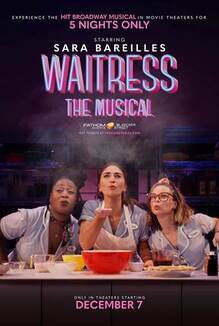
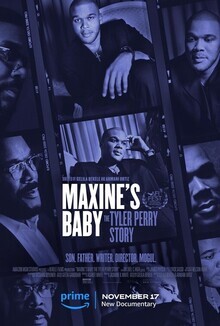
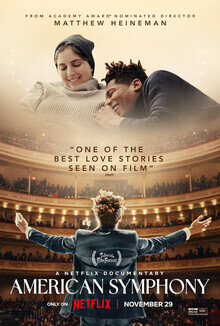
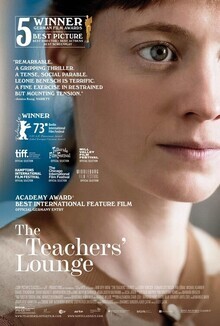
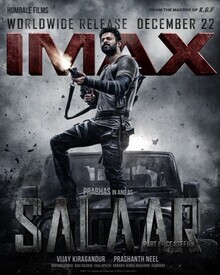
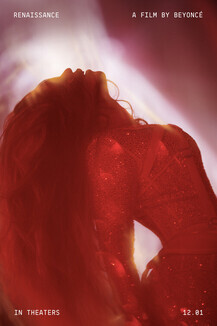
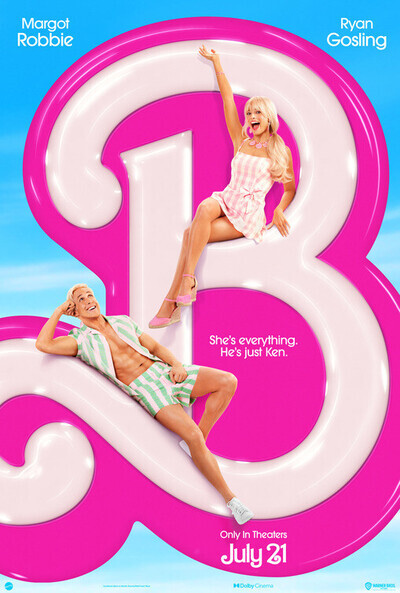
114 minutes
Margot Robbie as Barbie
Ryan Gosling as Ken
America Ferrera as Gloria
Will Ferrell as Mattel CEO
Kate McKinnon as Weird Barbie
Ariana Greenblatt as Sasha
Issa Rae as President Barbie
Rhea Perlman as Ruth Handler
Hari Nef as Doctor Barbie
Emma Mackey as Physicist Barbie
Alexandra Shipp as Writer Barbie
Michael Cera as Allan
Helen Mirren as Narrator
Simu Liu as Ken
Dua Lipa as Mermaid Barbie
John Cena as Kenmaid
Kingsley Ben-Adir as Ken
Scott Evans as Ken
Jamie Demetriou as Mattel Executive